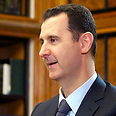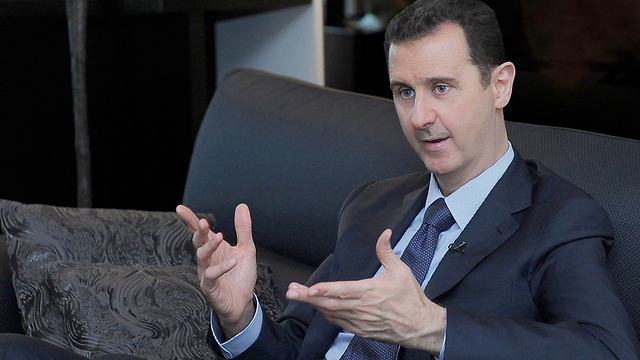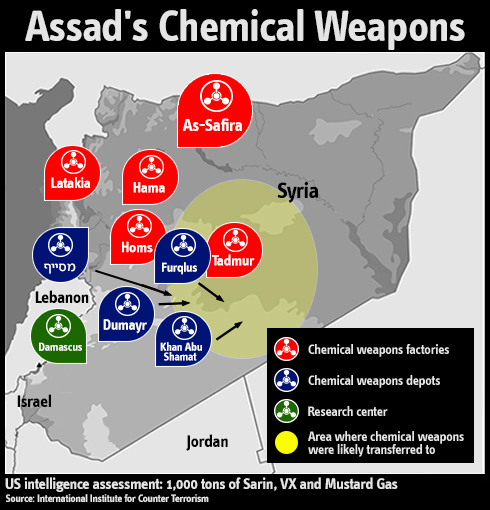
Smuggling, hiding, stalling: Assad's bag of tricks
US-Russian initiative says Syria will hand over chemical stockpile by mid 2014, but road to disarming remains long. Reports say Assad transporting chemical agents to Iraq, continues stalling
The US and Russia signed an agreement to disarm Syria of its chemical weapons by 2014, but Bashar Assad is left with many opportunities to fool the world until his stockpile is completely destroyed.
Much like Iraq following the First Gulf War and Iran in the last decade, Syria has plenty of tricks up its sleeve to use on UN inspectors.
Related stories:
- Netanyahu: Self defense is more important than ever
- Obama says deal on chemical weapons a plus for all
- US, Russia strike deal on Syria chemical weapons
Even before the Russians and Americans struck a deal, top rebel commander Salim Idris claimed that Assad was transporting chemical agents to Iraq and Lebanon. Lebanese paper Al-Mustaqbal, affiliated with anti-Hezbollah elements, reported Sunday that 20 Syrian trucks carrying chemical agents entered Iraq several days ago.
Truck movement on the Syrian-Iraqi border in the Al Anbar province was hastened on Thursday and Friday, sources say. The trucks passed through the border under military security and without being inspected, which raised suspicions they carried chemical agents.
Smuggling is not the only way Assad might use to fool inspectors; he could also hide weapons inside his own country. American and Mideast sources told the Wall Street Journal that a secret unit of the Syrian army was spreading chemical weapons in over 50 different locations in the country, to make it difficult for the US to find the stockpiles.
Sources said "Unit 450", a branch of the Syrian Scientific Studies and Research Center, which manages the regime's overall chemicals weapons program, is responsible for scattering the chemical weapons in different locations.
Stalling and disrupting UN inspectors is another one of Assad's options. Inspectors who recently reached Damascus to examine the sites where the Syrian army allegedly used chemical weapons were fired at. They weren't hurt, but Syrian opposition said this was an attempt by Assad to stall and keep the UN from collecting samples from the area.
Additionally, the Assad regime may claim that at least some of the chemical facilities are being used for other purposes and inspectors therefore cannot enter them, as the Sadam Hussein regime did in Iraq two decades ago.
Difficult plan to execute
Syrian Coalition member Najib al-Ghadban told the Asharq Al Awsat paper Sunday that he is worried that the Syrian chemical weapon issue will become the same as the Iranian nuclear issue, "Done purposefully to drag processes out and buy more time."He also said that the Syrian opposition is against Assad staying in power after the chemical weapons attack. "Soon there will be a meeting between American officials and Syrian opposition officials to express our displeasure with the agreement."
Dr. David Friedman, a senior research fellow in the Institute for National Security Studies (INSS), told Ynet that "In principle, I think it's an excellent agreement, it's good for Israel and good for the region, but there will be a lot of difficulty implementing it."
Dr. Friedman said he thinks the timetable is "optimistic", and that there is no chance of Syria disarming according to the timetable. "In Iraq it took a few years until the country was disarmed, so I have no doubt that the times set are unrealistic."
As for the problems of the actual work of disarming chemical weapons, Dr. Friedman said, "First we have to get the list of all the chemical weapons locations. It's a very complex and scattered system, and the Syrians presumably changed the location of a lot of the weapons. I'm guessing it will be very difficult to locate the sites and destroy the weapons."
Roi Kais contributed to this article
- Receive Ynetnews updates directly to your desktop












